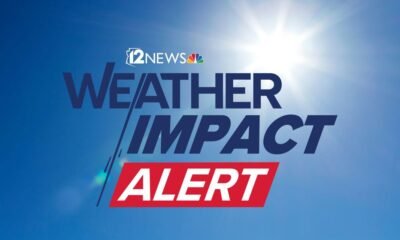arizona
Arizona ID Laws Threaten to Disenfranchise Thousands of Trans Voters

Concerns are rising among LGBTQ+ voting rights advocates in Arizona regarding the state’s strict voter ID laws, recently reinstated by the U.S. Supreme Court. These laws create systemic challenges for transgender individuals aiming to participate in upcoming elections.
Arizona boasts over 30,000 transgender adults, with approximately 24,400 eligible to vote. However, a significant barrier looms as 9,400 of these voters may struggle to cast their ballots because of the potential hurdles imposed by the reinstated ID law, as highlighted in a recent report from the Williams Institute at UCLA.
The law mandates that voters present a specific type of state identification to vote in local elections, including a state driver’s license, ID card, or tribal enrollment card. If such forms of ID are unavailable, voters can alternatively show two proof-of-residency documents, like a utility bill. Provisional ballots are an option for voters lacking necessary documents, but these require additional verification.
While the Secretary of State assures that provisional ballots won’t deny anyone their voting rights, transgender voters face unique challenges. Individuals who have not changed their name or gender on official documents may end up presenting IDs that do not accurately represent their appearance.
To change gender markers on Arizona ID, individuals must procure a letter from a licensed physician affirming their commitment to the transition process. This procedure significantly contrasts with the previous, more stringent requirements for changing birth certificates, which demanded proof of gender reassignment surgery. According to a 2019 study by the National Institutes of Health, only about half of transgender men and just over a quarter of transgender women undergo such surgeries.
Research from the Williams Institute reveals that nearly 40% of Arizona’s eligible transgender voters hold IDs that may necessitate provisional voting or present other voting obstacles compared to their cisgender peers.
Nalea Akther, a Phoenix resident who transitioned in 2020, expresses reluctance to navigate the ID-changing process, despite feeling prepared. “It’s been a journey I’ve never wanted to go down,” she explained, noting her readiness to vote in person this November while recognizing her experiences may differ from others due to her unchanged name.
Akther perceives a systematic discrimination within voting laws, stating, “It’s interesting how these systems find a way to discriminate.” This sentiment reflects broader apprehensions that transgender individuals, particularly those who haven’t legally updated their documents, might face discrimination at polling places.
Though Arizona has no specific law mandating that the identification presented at polling stations matches the individual’s appearance, LGBTQ+ advocates remain cautious. They fear that voting may be complicated further for many transgender individuals. Currently, ID laws vary countrywide, with some states enforcing strict matching requirements while others adopt more lenient policies.
Historically, proponents of voter ID laws have claimed they help prevent illegal voting, though evidence suggests that voter fraud incidents are rare and predominantly committed by American citizens. The Williams Institute report highlights the negative impacts of rigid ID laws on various groups, including the elderly and formerly incarcerated individuals. As a result, nearly a quarter of a million transgender people may experience additional obstacles when trying to vote this November.
To alleviate issues stemming from in-person voting, advocates encourage voters to utilize mail-in ballots, enhancing accessibility. “Ideally, everyone should sign up for a mail-in ballot,” stated Bridget Sharpe, state director for the Human Rights Campaign in Arizona, focusing on voter engagement within the LGBTQ+ community.


















